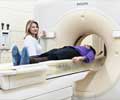Q: Which doctor treats rhabdomyosarcoma?
A: A team of doctors comprising of pediatric oncologist, oncologists, radiologists and surgeons treat rhabdomyosarcoma.
Q: What are the risk factors for rhabdomyosarcoma?
A: In the majority of the cases there is no identifiable risk factor. Sometimes, the disease can appear as part of a genetic syndrome.
Q: Will radiation be used to treat my child?
A: Radiation is often employed at sites where the rhabdomyosarcoma tumor is visible. When surgery cannot be used, radiation is administered to control cancer spread.
Q: How long will treatment take? How long will my child be in the hospital?
A: Chemotherapy is given in cycles of 2 to 5 days every 3 weeks. The total duration of chemotherapy ranges between 12 and 45 weeks and this depends on the type and stage of the disease.
If surgery is done, the patient may take 2 weeks to recover. Radiation therapy is often given for 5 days per week and may last for up to 4 to 6 weeks.
Q: Will my other children get rhabdomysarcoma?
A: The chances of this happening is very rare.
Q: Which are the locations that rhabdomyosarcoma spread to?
A: The tumor cells can spread to a wide variety of locations in the body such as brain, lungs, liver, breast, bones, bone marrow, lymph nodes, spleen and other sites of soft tissue.
Q: Can rhabdomyosarcoma recur?
A: Unfortunately, it can come back to the original site or any other site, even after treatment. Once this happens more treatment is required.
Q: What is the nature of research that is being conducted on rhabdomyosarcoma?
A: Scientists are analyzing the biological and genetic basis of this sarcoma. These studies hope to contribute to better ways of diagnosing and treating rhabdomyosarcoma and to prevent the recurrence of the disease.















